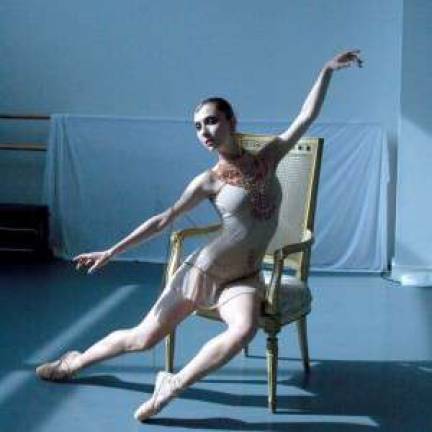Anna Liceica and The Joffrey Survive I want to give high praise to ex-American Ballet Theater soloist Anna Liceica, now a member of Ballet Verité, who danced recently month at a concert honoring Levi HaLevi. He was a rabbi and civil rights activist who was the father-in-law of Verité choreographer Seth Gertsacov. In Manhattan Movement and Arts Center's black-box performance space, Liceica demonstrated that her artistry is as rare as it was when showcased on the stage of the Met. And I want to recommend Bob Hercules's new film Joffrey: Mavericks of American Dance, which is showing at Cinema Village through Friday, May 4 (it received its world premiere at the Lincoln Center Dance on Camera Festival earlier this year.) On the cringe meter, this documentary hardly even ranks. That's high praise indeed, considering what anyone who has any regard for ballet must usually endure when the art form now makes its occasional appearance on the big or small screen. Liceica moved with ease and beauty and dramatic potency in a sliver from Weill and Brecht's The Seven Deadly Sins. The sin here in question was pride. Choreographer Gertsacov set up a neat snare to enmesh her in what goeth before a fall. As wonderful as was Lynn Taylor Corbett's recent production of this same score at New York City Ballet, there's always room for more choreographic responses to this great work. Hopefully Gertsacov will now choreograph the entire work for Liceica. This concert included students and pros, among them NYCB's Amar Ramasar. Everyone who danced evinced the right spirit. Ballet has always sought to enlarge its vocabulary by absorbing, appropriating, transforming different movement languages. (Of course all theatrical dance comes from folk, so the more ballet reaches outside itself the more it comes full circle.) Robert Joffrey's interest in crafting just that kind of expansion is a running theme of the Hercules film, which chronicles the ups and downs of the company Joffrey founded in 1956. It remains very much alive today, a quarter-of-a-century after Joffrey himself died of AIDS. The movie is an act of tribute, and sometimes the claims it makes are extravagant. But they arise, one feels as one watches the film, from enthusiasm, not the attempt to coerce. Like the Ballet Verité concert, the documentary's spirit isn't cramped. It also addresses rough times and leadership crises in the life of the company, as well as the major contribution that Joffrey made to preserving landmarks of ballet that had often fallen into oblivion. There is lots of good performances footage. To read the full article at CityArts [click here](http://cityarts.info/2012/05/02/i-come-to-praise/).

